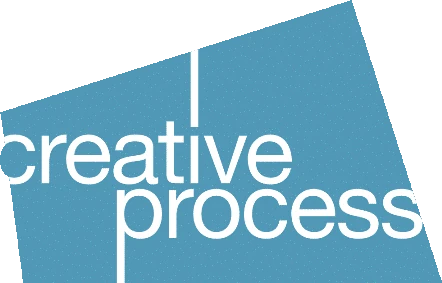Creative Process Digital Data Protection Policy
- Introduction
Creative Process Digital needs to collect and use certain types of information about the Individuals or Learners who come into contact with Creative Process Digital in order to carry out our work. This personal information must be collected and dealt with appropriately whether it is collected on paper, stored in a computer database, or recorded on other material and there are safeguards to ensure this under the Data Protection Act 1998.
- Data Controller
Creative Process Digital is the Data Controller under the Act, which means that it determines what purposes personal information is held and will be used for. It is also responsible for notifying the Information Commissioner of the data it holds or is likely to hold, and the general purposes that this data will be used for.
3. Disclosure
Creative Process Digital may share data with other agencies such as the local authority, funding bodies and other voluntary agencies.
The Individual/Learner will be made aware in most circumstances how and with whom their information will be shared. There are circumstances where the law allows Creative Process Digital to disclose data (including sensitive data) without the data subject’s consent.
These are:
- Carrying out a legal duty or as authorised by the Secretary of State.
- Protecting vital interests of a Individual/Learner or other person.
- The Individual/Learner has already made the information public.
- Conducting any legal proceedings, obtaining legal advice or defending any legal rights.
- Monitoring for equal opportunities purposes – i.e. race, disability or religion.
- Providing a confidential service where the Individual/Learner’s consent cannot be obtained or where it is reasonable to proceed without consent: e.g. where we would wish to avoid forcing stress or ill health Individuals/Learners to provide consent signatures.
Creative Process Digital regards the lawful and correct treatment of personal information as very important to successful working, and to maintaining the confidence of those with whom we work.
Creative Process Digital intends to ensure that personal information is treated lawfully and correctly.
To this end, Creative Process Digital will adhere to the Implementation Guidelines of Data Protection, as detailed in the Data Protection Act 1998.
Specifically, the Implementation Guidelines require that personal information:
- Shall be processed fairly and lawfully and, in particular, shall not be processed unless specific conditions are met.
- Shall be obtained only for one or more of the purposes specified in the Act, and shall not be processed in any manner incompatible with that purpose or those purposes.
- Shall be adequate, relevant and not excessive in relation to those purpose(s) .
- Shall be accurate and, where necessary, kept up to date.
- Shall not be kept for longer than is necessary.
- Shall be processed in accordance with the rights of data subjects under the Act.
- Shall be kept secure by the Data Controller who takes appropriate technical and other measures to prevent unauthorised or unlawful processing or accidental loss or destruction of, or damage to, personal information.
- Shall not be transferred to a country or territory outside the European Economic Area unless that country or territory ensures an adequate level of protection for the rights and freedoms of Individuals/Learners in relation to the processing of personal information.
Creative Process Digital will, through appropriate management and strict application of criteria and controls:
- Observe fully conditions regarding the fair collection and use of information.
- Meet its legal obligations to specify the purposes for which information is used.
- Collect and process appropriate information, and only to the extent that it is needed to fulfill its operational needs or to comply with any legal requirements.
- Ensure the quality of information used.
- Ensure that the rights of people about whom information is held, can be fully exercised under the Act. These include:
- The right to be informed that processing is being undertaken.
- The right of access to one’s personal information.
- The right to prevent processing in certain circumstances.
- The right to correct, rectify, block or erase information which is regarded as wrong information).
- Take appropriate technical and organisational security measures to safeguard personal information.
- Ensure that personal information is not transferred abroad without suitable safeguards.
- Treat people justly and fairly whatever their age, religion, disability, gender, sexual orientation or ethnicity when dealing with requests for information.
- Set out clear procedures for responding to requests for information
- Data collection
Informed consent is when
- An Individual/Learner clearly understands why their information is needed, who it will be shared with, the possible consequences of them agreeing or refusing the proposed use of the data
- And then gives their consent.
Creative Process Digital will ensure that data is collected within the boundaries defined in this policy. This applies to data that is collected in person, or by completing a form.
When collecting data, Creative Process Digital will ensure that the Individual/Learner:
- Clearly understands why the information is needed.
- Understands what it will be used for and what the consequences are should the Individual/Learner decide not to give consent to processing.
- As far as reasonably possible, grants explicit consent, either written or verbal for data to be processed.
- Is, as far as reasonably practicable, competent enough to give consent and has given so freely without any duress.
- Has received sufficient information on why their data is needed and how it will be used.
- Data Storage
Information and records relating to Individuals/Learners will be stored securely and will only be accessible to authorised staff.
Information will be stored for only as long as it is needed or required statute and will be disposed of appropriately.
It is Creative Process Digital’s responsibility to ensure all personal and company data is non-recoverable from any computer system previously used within the organisation, which has been passed on/sold to a third party.
- Data Access and Accuracy
All Individuals/Learners have the right to access the information Creative Process Digital holds about them. Creative Process Digital will also take reasonable steps to ensure that this information is kept up to date by asking data subjects whether there have been any changes.
In addition, Creative Process Digital will ensure that:
- It has a Data Protection Officer with specific responsibility for ensuring compliance with Data Protection.
- Everyone processing personal information understands that they are contractually responsible for following good data protection practice.
- Everyone processing personal information is appropriately trained to do so.
- Everyone processing personal information is appropriately supervised.
- Anybody wanting to make enquiries about handling personal information knows what to do.
- It deals promptly and courteously with any enquiries about handling personal information.
- It describes clearly how it handles personal information.
- It will regularly review and audit the ways it hold, manage and use personal information.
- It regularly assesses and evaluates its methods and performance in relation to handling personal information.
-
All staff are aware that a breach of the rules and procedures identified in this policy may lead to disciplinary action being taken against them.
This policy will be updated annually to reflect best practice in data management, security and control and to ensure compliance with any changes or amendments made to the Data Protection Act 1998.
In case of any queries or questions in relation to this policy please contact the Creative Process Digital Data Protection Officer:
Chris Wood





